
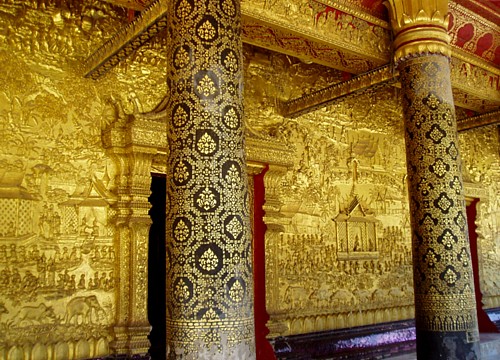
This story of the charitable Prince Vessantara who gave away every single thing he had, including his wife & two children, is recounted in a marathon recitation by monks & reenacted by laymen during the Boun Pha Wet festival in Laos & Isaan.
There are several pavilions, of which some probably represent the six alms halls where Prince Vessantara's mother distributed silver daily before his birth:
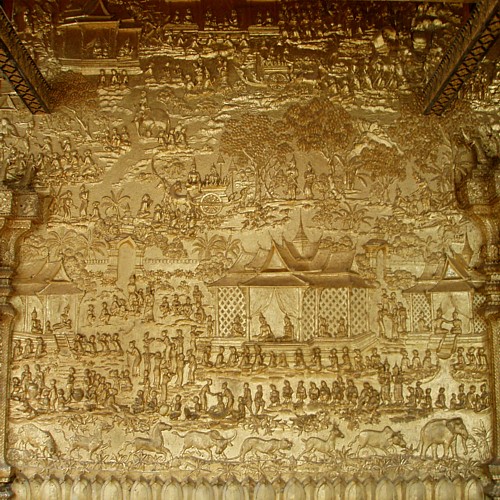
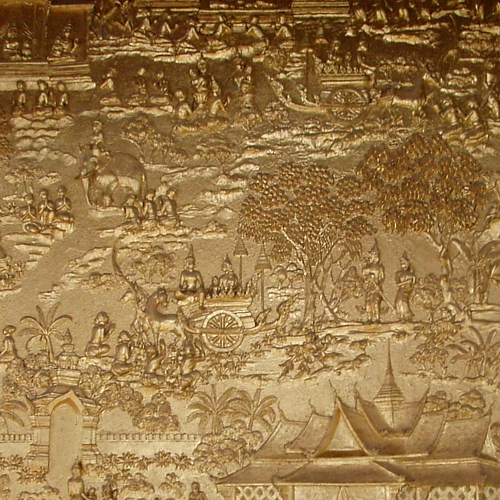
When the prince was older, he visited his mother's alms halls six times a month on the back of a sacred royal white elephant to distribute gold:
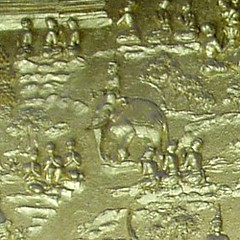
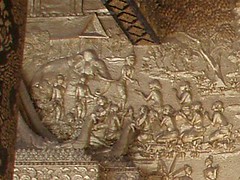
However, Prince Vessantara was banished from his father's kingdom after he gave away that precious elephant to another kingdom. He spent his last day in his father's kingdom giving away all of his possessions (totalling 700?), including slaves, horses & even more elephants. (For Boun Pha Wet parades, papier mache elephants & horses are made to represent these gifts; one temple in Sakon Nakhon even had a papier mache zebra.) The prince then left with his wife & kids in a chariot...
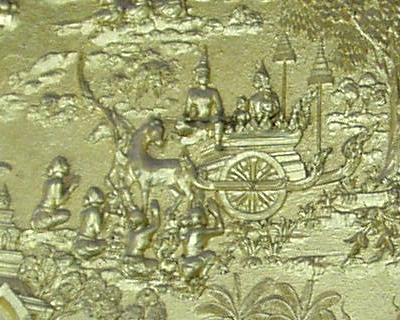
...only to encounter Brahmins who asked for the horses & chariot, which the prince naturally granted them. & so Prince Vessantara & his wife continued their journey into exile on foot, each carrying one child:
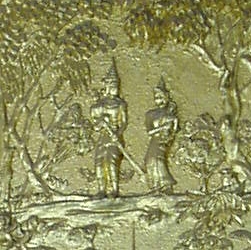
They lived as hermits in the forest beside a lotus pond. One day, the wife of a poor Brahmin, Jujaka, told him to get her two servants. Jujaka, who could not afford to buy any slaves, decided to ask Prince Vessantara for his children. The prince agreed, but his children ran away to hide under the leaves of the lotus plants in the pond. One child begging not to be given away, & the other hidden in the pond (bottom left corner):
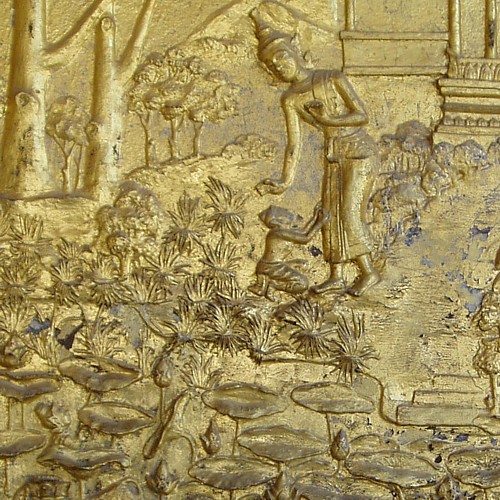
Jujaka bound their hands with jungle vines & took them away:
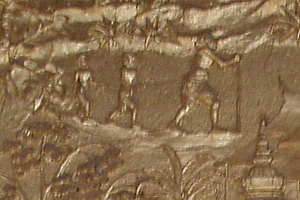
Their mother was later given away to another Brahmin, who turned out to be the god Indra in disguise:
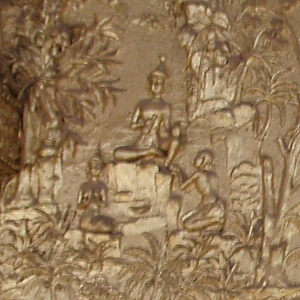
At the end of the story, the family was eventually reunited & allowed to return to the kingdom of Prince Vessantara's father. For details of the happily-ever-after fairytale ending, refer to the links above ;)
Wat Xieng Thong makes a cameo appearance in the stucco work:
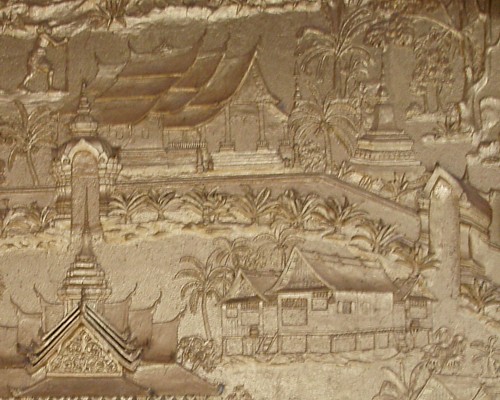
More detail:
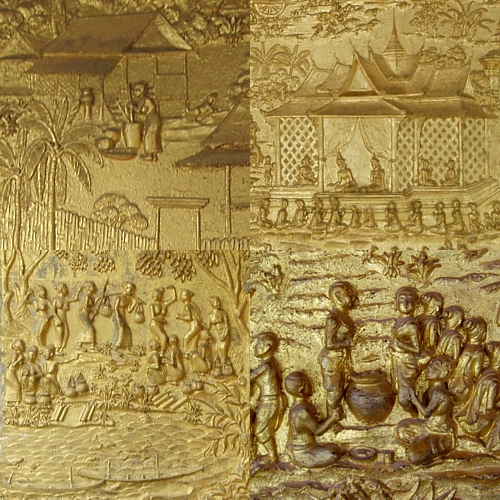
Some of the many animals - does anyone know their significance?

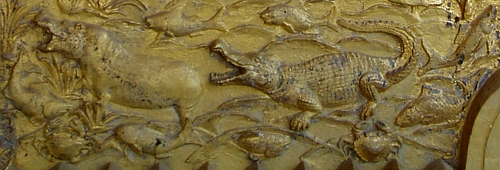
3D rhino that looks as if it's turning its head to glare at you:
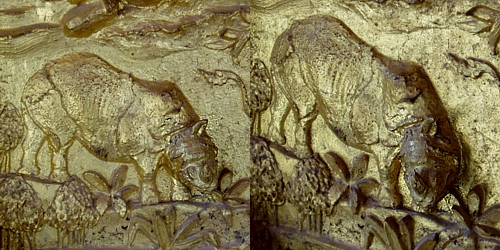


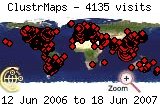
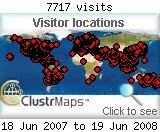


No comments:
Post a Comment